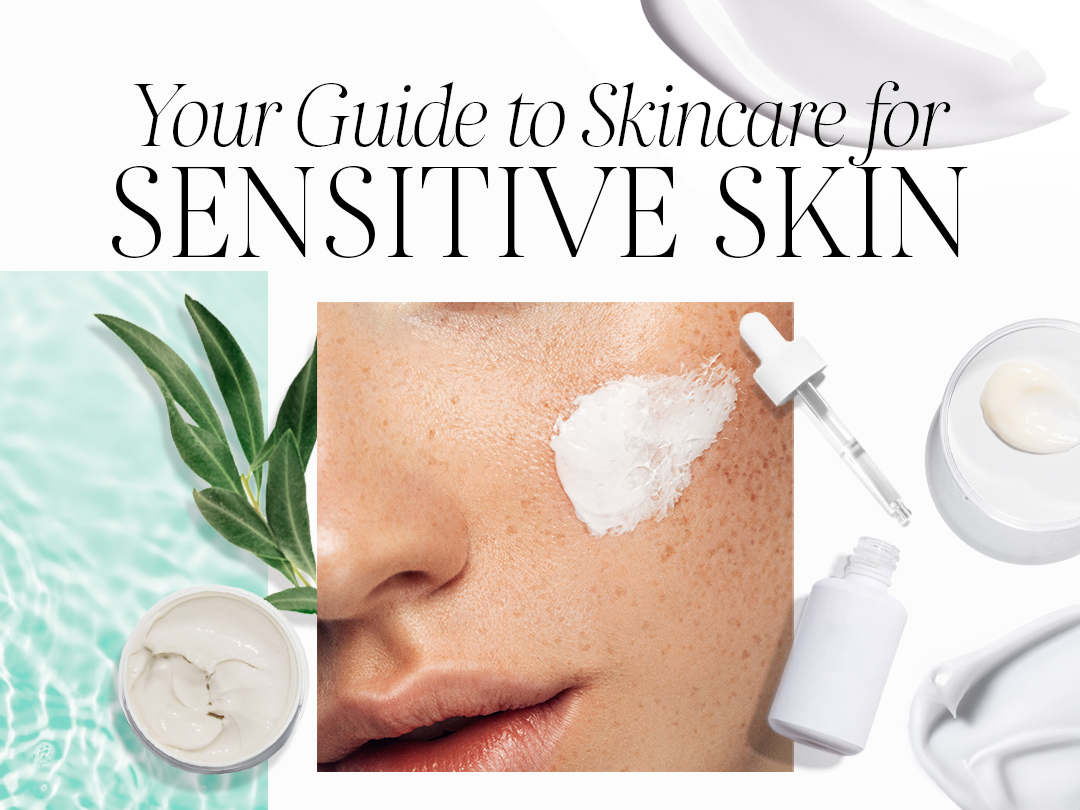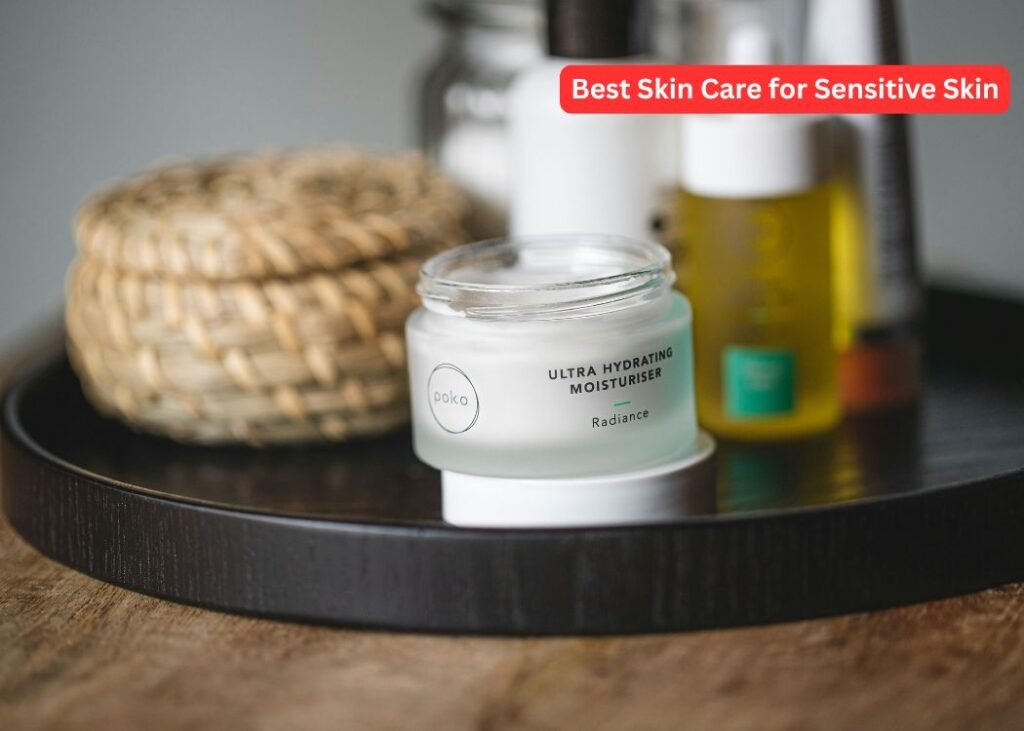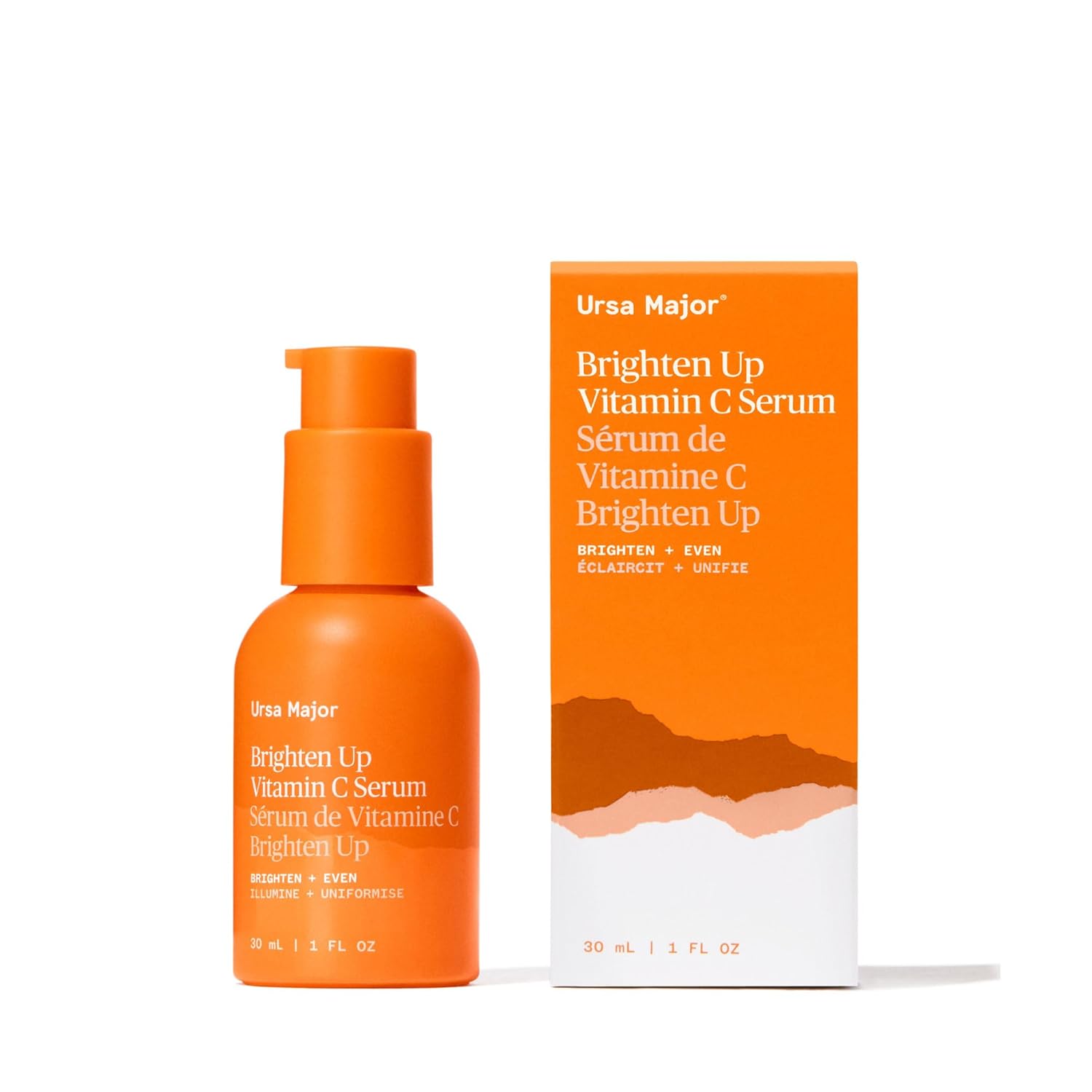Best Skin Care for Sensitive Skin: Are you tired of searching for the perfect skin care routine that won’t irritate your sensitive skin? You’re not alone.
Sensitive skin can be challenging, with every product choice feeling like a gamble. The wrong cream or cleanser can leave your skin red, itchy, and uncomfortable. But what if you could transform your skincare routine into a soothing experience instead of a stressful one?
Imagine finding products that not only pamper your skin but also keep it calm and happy. You’ll discover the best skin care tips and products specifically designed for sensitive skin. Let’s dive in and unlock the secrets to a gentle, effective routine that your skin will thank you for.

Credit: www.sephora.sg
Understanding Sensitive Skin
Sensitive skin needs gentle care. Choose products with natural ingredients and avoid harsh chemicals. Look for fragrance-free options to reduce irritation and maintain healthy skin.Understanding sensitive skin is crucial for developing an effective skincare routine. Many people experience sensitivity without knowing its true nature. Sensitive skin requires special attention and care to maintain its health and appearance. Let’s dive into understanding what makes skin sensitive and how you can manage it effectively.
Common Symptoms
Sensitive skin often presents itself through various symptoms. You might notice redness, itching, or a burning sensation after using certain products. Dry patches and frequent breakouts are also indicators of sensitivity. Have you ever experienced discomfort after a day in the sun? That’s your sensitive skin reacting. Identifying these symptoms early can help you choose products that soothe rather than irritate.
Causes And Triggers
Sensitive skin can be triggered by a variety of factors. Environmental elements like pollution and extreme weather can aggravate your skin. Sometimes, even a change in laundry detergent can cause a reaction. Stress is another trigger that many overlook; it can make your skin more reactive. Are you aware that certain foods can lead to skin sensitivity? Spicy foods and alcohol are known culprits. Understanding these triggers allows you to take proactive steps in protecting your skin. Sensitive skin doesn’t have to be a burden. By recognizing symptoms and identifying triggers, you can tailor your skincare routine to meet your skin’s unique needs. What changes will you make today to treat your skin with the care it deserves?
Daily Skincare Routine
Having sensitive skin can feel like navigating a minefield. You try a new product, and bam—redness, irritation, or breakouts appear. That’s why a thoughtful daily skincare routine is essential. The right approach can soothe your skin and enhance its natural glow. Let’s dig into the key elements that can transform your skincare routine into a calming ritual.
Gentle Cleansing
Cleansing is the foundation of any skincare routine. With sensitive skin, choosing a gentle cleanser is crucial. Avoid products with harsh chemicals or fragrances. These can trigger irritation and dryness.
Look for cleansers labeled as “hypoallergenic” or “for sensitive skin.” They are typically less irritating and more soothing. A personal favorite might be a mild micellar water that lifts dirt without stripping your skin’s natural oils.
How do you know if a cleanser is right for you? Pay attention to how your skin feels afterward. If it feels tight or itchy, it’s time to switch products.
Moisturizing Techniques
Moisturizing does wonders for sensitive skin. It’s not just about hydration; it’s about creating a protective barrier. Use a moisturizer that’s fragrance-free and rich in hydrating ingredients like glycerin or hyaluronic acid.
Applying moisturizer while your skin is still slightly damp can lock in moisture. Ever tried layering? It involves applying a serum before your moisturizer. This technique can amplify hydration and soothe irritation.
Have you noticed dry patches even after moisturizing? Consider using a heavier cream at night for extra nourishment.
Sun Protection
Sun exposure can wreak havoc on sensitive skin. That’s why sunscreen is non-negotiable. Opt for a mineral-based sunscreen containing zinc oxide or titanium dioxide. These ingredients provide broad-spectrum protection without causing irritation.
Think about sunscreen as your skin’s invisible shield. Apply it generously, even when you’re indoors. Your skin can still be affected by UV rays through windows.
Ever skipped sunscreen because it felt greasy? Try a lightweight formula with a matte finish. It can protect your skin without feeling heavy or sticky.
Crafting your daily skincare routine can feel overwhelming, but it’s a journey worth taking. What changes will you make today to show your sensitive skin some love?
Ingredients To Avoid
Sensitive skin needs gentle care. Avoid alcohol, fragrance, and sulfates in skincare products. These can irritate and cause redness. Opt for soothing ingredients like chamomile and aloe vera instead.Navigating the world of skincare can be tricky, especially if you have sensitive skin. Knowing which ingredients to avoid is crucial in preventing irritation and achieving a healthy glow. Let’s explore some common culprits that might be causing your skin troubles without you even realizing it.
Harsh Chemicals
Harsh chemicals are often hidden in skincare products, causing more harm than good. Ingredients like sulfates and parabens can strip your skin of its natural oils, leading to dryness and irritation. I remember using a popular face wash that left my skin feeling tight and uncomfortable—only to realize it was loaded with sulfates. Why subject your skin to harsh treatments? Opt for products labeled as “sulfate-free” or “paraben-free” to ensure you’re treating your skin kindly. Your skin deserves to feel nourished, not stressed.
Fragrances
Fragrances can be a sneaky source of irritation for sensitive skin. Even products labeled as “natural” may contain fragrance that causes redness or itching. I once tried a lavender-scented moisturizer, thinking it would be soothing, only to end up with a red, blotchy face. Have you checked the ingredient list for “fragrance” or “parfum”? These terms often mask a cocktail of chemicals that can trigger allergies. Opt for fragrance-free products to keep your skin calm and happy.
Alcohol-based Products
Alcohol-based products might give a refreshing tingle, but they can be too harsh for sensitive skin. Alcohol can quickly dry out your skin, leading to flakiness and discomfort. I learned the hard way when a toner I used left my cheeks feeling like sandpaper. Does your skincare routine include alcohol-heavy products? Look for alternatives like hydrating toners with glycerin or aloe vera. Your skin will thank you with a healthy, hydrated glow. Understanding these ingredients and their effects can make a significant difference in your skincare journey. Have you experienced any unexpected skin reactions? Share your story or try these tips to see if they make a difference. Your sensitive skin deserves the best care possible.
Soothing Ingredients
Sensitive skin craves gentle care. Natural ingredients like aloe vera, chamomile, and oatmeal provide soothing relief. These elements help calm irritation, reduce redness, and maintain skin’s moisture balance. Perfect for daily use.Sensitive skin needs gentle care. The right ingredients can soothe irritation. Finding products with calming elements is essential. Sensitive skin often reacts to harsh chemicals. Natural ingredients offer a safe alternative. Discover soothing ingredients that ease sensitive skin.
Aloe Vera Benefits
Aloe vera is a natural healer. Its gel provides cooling effects. It reduces redness and irritation. The plant’s anti-inflammatory properties calm inflamed skin. Aloe vera moisturizes without feeling greasy. This makes it perfect for sensitive skin. Many skincare products include aloe vera. It’s gentle and effective.
Chamomile For Calmness
Chamomile is known for its calming nature. It has anti-inflammatory qualities. These help soothe irritated skin. Chamomile also reduces redness and puffiness. Its gentle formula is ideal for sensitive skin. Chamomile can be found in creams and lotions. It promotes calmness and balance. Sensitive skin feels relaxed with chamomile.
Oatmeal For Relief
Oatmeal offers relief for sensitive skin. It reduces itching and dryness. Rich in antioxidants, it protects skin from damage. Oatmeal has a soothing texture. It acts as a gentle exfoliant. This helps remove dead skin cells. Oatmeal hydrates and nourishes. Sensitive skin feels soft and refreshed. Many products feature oatmeal for sensitive skin care.
Top Recommended Products
Sensitive skin deserves gentle care and effective protection. Discover top skin care products designed to soothe and nourish. These selections prioritize hydration, calming irritation, and enhancing the natural glow.When caring for sensitive skin, selecting the right products is crucial. The wrong choice can lead to irritation, redness, or breakouts. This guide highlights top recommended skincare products designed for sensitive skin. Each product is gentle, effective, and ideal for daily use. Let’s dive into the essentials that your sensitive skin will love.
Best Cleansers
Sensitive skin requires gentle cleansing. Look for products that remove impurities without stripping natural oils. Cetaphil Gentle Skin Cleanser is a favorite among dermatologists. Its mild formula cleanses while hydrating. Another option is La Roche-Posay Toleriane Hydrating Gentle Cleanser. This product soothes and restores skin comfort. Both cleansers offer a refreshing experience without causing irritation.
Effective Moisturizers
Moisturizing is key for sensitive skin health. Choose products that hydrate and calm the skin. Aveeno Calm + Restore Oat Gel Moisturizer offers soothing hydration. It contains oat and feverfew, known for calming effects. Neutrogena Hydro Boost Water Gel is another excellent choice. It provides lightweight moisture with hyaluronic acid. Both options ensure your skin stays soft and comfortable.
Spf Options
Sun protection is vital, especially for sensitive skin. Select SPF products designed to minimize irritation. EltaMD UV Clear Broad-Spectrum SPF 46 offers protection and skin-soothing benefits. Its formulation includes niacinamide, reducing redness. The La Roche-Posay Anthelios Melt-in Milk Sunscreen is gentle and effective. It provides broad-spectrum coverage with antioxidants. Both SPF options shield sensitive skin while maintaining comfort.

Credit: www.thebeautyblotter.com
Lifestyle Tips For Sensitive Skin
Living with sensitive skin can be challenging. It requires special care and attention. Lifestyle choices play a big role in managing sensitive skin. Small changes make a big difference. Here are some practical tips to help you care for your skin.
Dietary Considerations
Your diet impacts your skin’s health. Eating a balanced diet helps maintain skin health. Include foods rich in vitamins and antioxidants. Leafy greens, berries, and nuts are great options. Avoid spicy foods and alcohol. They can trigger skin irritation.
Stress Management
Stress affects your skin. It can lead to flare-ups and irritation. Practice relaxation techniques daily. Meditation and deep breathing are helpful. Regular exercise reduces stress levels. Keep a consistent sleep schedule. Rest is crucial for skin repair.
Environmental Factors
Be mindful of your environment. Pollution and harsh weather damage sensitive skin. Use a good sunscreen every day. It protects against harmful UV rays. Wear protective clothing in extreme weather. Keep your indoor air clean. A humidifier prevents skin dryness.
Consulting A Dermatologist
Consulting a dermatologist is crucial for those with sensitive skin. Dermatologists offer expert advice tailored to individual needs. Their guidance can help prevent skin irritation and maintain a healthy complexion. Understanding when to seek help and what to expect can ease the process.
When To Seek Help
Persistent redness or irritation indicates it’s time to consult a dermatologist. If over-the-counter products fail, professional advice is necessary. A dermatologist can diagnose underlying conditions affecting your skin. Early intervention prevents further damage and discomfort.
What To Expect
Your first visit will include a detailed skin assessment. Be ready to discuss your skincare routine and any symptoms. The dermatologist may recommend specific products or treatments. You might receive personalized tips to care for your sensitive skin. This expert guidance helps you achieve a balanced and calm complexion.

Credit: www.getthegloss.com
Frequently Asked Questions
What Is Sensitive Skin Care Routine?
A sensitive skin care routine includes gentle cleansing, moisturizing, and sun protection. Use products free from fragrances and harsh chemicals. Always patch-test new products to avoid irritation. Incorporate soothing ingredients like aloe vera or chamomile. Consistent care helps maintain skin’s natural barrier, preventing redness and discomfort.
How To Identify Sensitive Skin Symptoms?
Sensitive skin often shows redness, itching, or dryness. It may react to skincare products or environmental changes. Signs include stinging or burning sensations. Pay attention to these symptoms to tailor your skincare routine. Consult a dermatologist for a proper diagnosis if symptoms persist.
Which Ingredients Soothe Sensitive Skin?
Ingredients like aloe vera, chamomile, and calendula are soothing for sensitive skin. Oatmeal and niacinamide also help calm irritation. Look for products labeled “hypoallergenic” or “for sensitive skin. ” Avoid fragrances and alcohol-based products. These ingredients help reduce redness and improve skin comfort.
Can Sensitive Skin Use Exfoliating Products?
Yes, but choose gentle exfoliants for sensitive skin. Opt for products with mild acids like lactic acid or enzyme-based exfoliants. Use them sparingly, perhaps once a week. Over-exfoliating can damage the skin barrier and increase sensitivity. Always follow with a moisturizer to maintain hydration.
Conclusion
Sensitive skin needs gentle care. Choose products free from harsh chemicals. Look for soothing ingredients like aloe vera and chamomile. Hydration is crucial; use a mild moisturizer daily. Always test new products on a small area first. Avoid fragrances that might irritate your skin.
Consistency is key to maintaining healthy skin. Regular routine helps prevent unexpected reactions. Prioritize simple, natural formulas for best results. Remember, everyone’s skin is unique. What works for one may not work for another. Listen to your skin’s needs. With patience, you can find the right products.
Keep your skin calm and happy.



